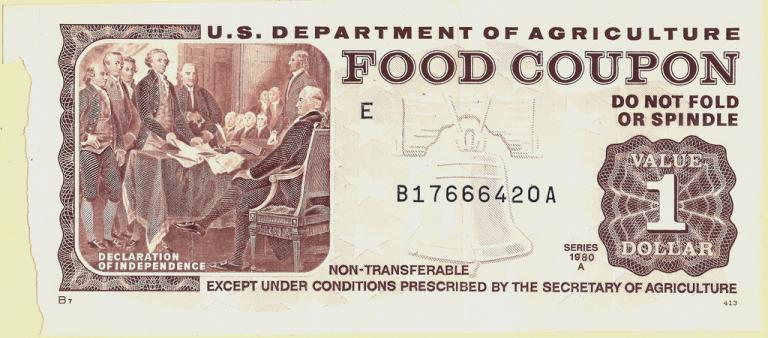Here’s the context:
Back in November, I wrote a post on the Works of Mercy, and how, in the year 2015 (because that was last year), it seemed that to a large degree the traditional Works have been supplemented, if not replaced, by Work of Mercy #8, “just write the d*** check already!” Especially for those of us who don’t earn a fixed amount of money but have some control over our work hours, we can generally do more good, measured in some objective manner, by working more hours and donating the earnings to a charity, than doing direct Works of Mercy actions. And this includes those who work part-time and have choice in how many hours to work per week, those who have the opportunity to accept or decline overtime (coming soon: overtime eligibility for everyone earning under $50K), those who can make a longer-term decision to work long hours in a salaried context, to earn that year-end bonus or speed the promotion, and people approaching retirement age deciding when to hang up their hat. If I’m retirement age, and contemplating quitting my job in order to volunteer somewhere, in most cases, unless I have specific skills that are transferable to the program in question, I can do more good by staying put and donating the funds. To be sure, if I can put specific skills to use, for example, by counseling women in crisis pregnancies, or managing the operation of a charity, that’s great, but the trade-off of leaving a skilled job for an unskilled charitible service like receiving donations at a food pantry or acting as a sales clerk at the local thrift store, along high schoolers earning their service hours, is not as clear, and spending your time making Linus Project blankets* or Little Dresses for Africa, even less so. What’s more, the practice of buying items to donate (whether that’s food to a food pantry, or a winter coats for a coat drive) generally has less ultimate benefit than donating the cash directly to an organization that can buy in bulk, and knows the specific needs of individual recipients. (A closet clean-out is a separate issue entirely, since that’s more about being responsible, rather than wasteful, with your possessions.)
(* Incidentally, the advent of fleece for no-sew blankets has radically changed the way Linus Project projects function — rather than actually sewing something hand-made, it seems to now be about cutting squares of fleece to size. I have a really hard time imagining that there’s value in this.)
One might add more Works of Mercy to the list, too. Teach the uneducated. Provide enrichment and encouragement to those in need of these. Mentor to break the cycle of poverty (which didn’t exist in the time of Christ as we know it now), rather than just alleviate material needs. (Are these included in the Spiritual Works of Mercy? I thought the latter are solely about, well, spiritual things — that is, instruction in religion rather than practical knowledge — but I’m willing to be corrected.) And it’s all muddled by Work of Mercy #???, “vote properly” — when virtually all of the poverty-alleviation game is done via government spending.
Now, I didn’t really find many takers in the comments — and that’s OK, as I really wanted to raise this for discussion, and there’s no “right” answer one way or the other. It’s a matter of degrees — and yes, both my husband and I volunteer with our church’s PADS group (the rotating homeless shelter) — he does the 3 – 7 shift, and I’m on a cooking team. Besides which, most of us have “extra” time, even after work and family obligations are dealt with, where we’re not realistically going to work more hours, but we can make the decision to watch TV, pursue a hobby, or do some kind of volunteer activity (though volunteer activities that can be done after the kids are in bed, or along with the kids, are limited in number).
What I did hear, there and elsewhere, was the idea that, regardless of what’s more effective, there’s something more spiritually beneficial and meritorious in doing something more direct than writing a check, even if there’s some “waste” to it.
But, having said all that, I was taken by surprise at the list of the Works of Mercy in yesterday’s bulletin at church, in an article about the Year of Mercy. Because Work #7 was, in fact, “give alms to the poor”!
I counted, and recounted. What was missing? Later on, I looked online: there it was, on the USCCB website,
GIVE ALMS TO THE POOR
Donate money to organizations that have the ability to provide support and services for those in need. Do research and find organizations that put people in need first, rather than profit.
And, in order to keep the list to seven, they’d removed “clothe the naked.” Why this one? I don’t know, especially since their suggestions for “give drink to the thirst” are pretty weak, suggesting a group of children donate water bottles to a homeless shelter for families, for instance. I would have thought that you’d combine “food” and “drink” into one, rather than removing a WoM entirely.
Now, that’s just the U.S. bishops talking; everywhere elsee online the Works are still the traditional seven. Perhaps that’s even just a single staffer, without review or editing from anyone higher-up. But it feels like a bit of cheating to simply swap out one for another, rather than acknowledging the complexity of the issue.
Image:
David Teniers the Younger (1610–1690), The Works of Mercy, from Wikimedia Commons, https://commons.wikimedia.org/wiki/File:David_Teniers_(II)_-_The_Works_of_Mercy_-_WGA22084.jpg














